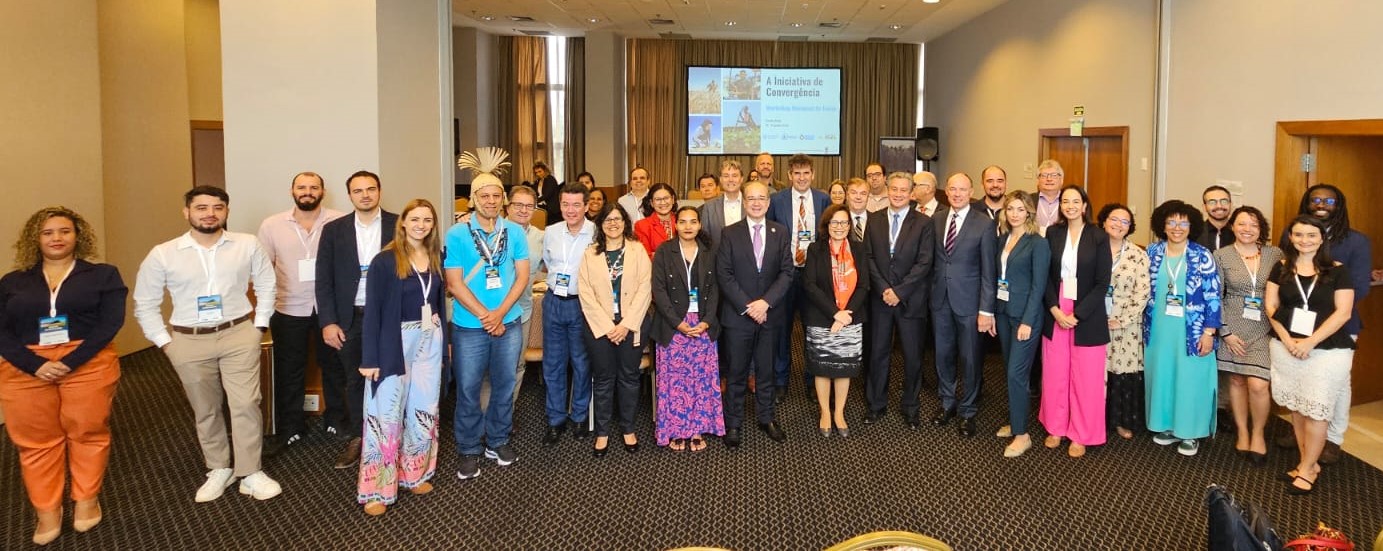SEED FUNDING JOINT PROGRAMMES
Cambodia
Transforming Cambodia’s food systems to become more sustainable, inclusive, and resilient


PROJECT TITLE | Transforming Cambodia’s food systems to become more sustainable, inclusive, and resilient |
| Context | Cambodia’s National Pathway is the outcome of an extensive consultation process, involving more than 2,000 people throughout thirty dialogues, which identifies four priority areas, namely healthy diets for all, empowerment of youth, women and vulnerable groups, resilient livelihoods and food systems, inclusive governance. Acknowledging the risks posed by climate change to hard won development gains and as a co-founder of the Alliance of Champions for Food Systems Transformation, Cambodia is prioritizing the integration of climate change and food systems transformation, building coherence across the agendas. The Council for Agricultural and Rural Development, the government agency coordinating food security and nutrition initiatives in Cambodia, is leading collaborative efforts to translate national aspirations into concrete action. |
| PUNOs | FAO, WFP, UNICEF |
| Contribution to SDGs | SDG 2 Zero Hunger |
| Contribution to other SDG transitions | Climate, biodiversity, pollution |
| Duration | August 2024 – July 2025 |
| Expected financial leverage | $3 million |
| Alignment with SG Call to Action | Policy integration; Food systems governance; Inclusive and participatory design; Private sector engagement |
| Outcomes | The Joint Programme fosters an enabling environment for food systems transformation by enhancing national capacities and policy frameworks, identifying opportunities to unlock financial streams, and strengthening advocacy efforts for food systems transformation. The JP provides crucial support to the alignment of the climate and food agendas, accelerating progress towards resilient, sustainable and inclusive food systems. |
| Partners | Council for Agricultural and Rural Development (CARD) will be the main government counterpart and will coordinate the government activities in conjunction with other key Ministries, including:
|
| Outputs |
|
Workshop in Brasilia addresses food systems and climate change

©WFP/Ana Mascarenhas
Brasília, Brazil – As climate change intensifies, rethinking how food is produced and consumed is essential. Addressing this, Brasília hosted a National Inception Workshop from October 29 to 31 to pilot the Convergence Initiative – an effort led by the UN Food Systems Coordination Hub to align food systems transformation with climate action.
This initiative builds on commitments made at COP28, held in 2023 in the United Arab Emirates, where countries pledged to advance sustainable agriculture, resilient food systems, and climate action. It also responds to the UN Secretary-General’s Call to Action from the UN Food Systems Summit +2 Stocktaking Moment (UNFSS+2).
Ambassador Maria Laura da Rocha, Secretary General of the Brazilian Ministry of Foreign Affairs, described the workshop as an invaluable opportunity to advance Brazil’s climate policies. She highlighted Brazil’s National Climate Action Plan, which unites government sectors to address sustainable finance, bioeconomy, food systems, circular economy, and technology. “We hope this exchange will drive critical progress toward COP30,” she stated in her opening remarks.
Supported by the Government of the Netherlands, the Convergence Initiative assists countries in aligning food systems transformation with climate action, accelerating progress toward the Sustainable Development Goals (SDGs) and the Paris Agreement.
Organized by Brazil’s Ministry of Foreign Affairs and the UN Food Systems Coordination Hub, with support from the WFP Centre of Excellence in Brazil and FAO, the workshop gathered representatives from the Brazilian government, civil society, academia, research institutes, and UN agencies. Participants shared policies aimed at transforming food systems and addressing climate challenges in Brazil, while reviewing Brazil’s national and international commitments in these areas.
In his opening remarks, André Driessen, Ambassador of the Netherlands to Brazil, reiterated the Netherlands’ commitment to support Brazil’s food systems transformation through knowledge sharing and active collaboration. Stefanos Fotiou, Director of the UN Food Systems Coordination Hub, presented Brazil’s updated national food systems pathway with a central focus on the right to food. Jorge Meza, FAO’s representative in Brazil, underscored the Convergence Initiative’s critical role in eradicating hunger and ensuring food and nutrition security, stating, “We are steadily losing agrobiodiversity due to our food systems’ current structure.”
Daniel Balaban, Director of the WFP Centre of Excellence against Hunger in Brazil, stressed the urgency of action: “We are at a crucial moment in 2024 to transform the world. There has never been so much global unity in transforming food systems, and Brazil is taking a leading role in this change. Now is the time to turn commitments into action. Countries must direct resources toward saving lives. The Brazilian government is fully committed to eradicating hunger, and we are here to support them.”
Arnoud Hameleers, representing IFAD, emphasized Brazil’s vital role within global food systems, noting, “Many factors that influence sustainable food systems extend beyond borders, making resilience a shared challenge.” He pointed out the importance of strategic decisions in shaping Brazil’s path in the Convergence Initiative. “Scenario building allows us to understand the system and find synergies, especially for rural communities, which often bear the heaviest burden.”
Following in-depth discussions, participants crafted recommendations to guide future actions for integrating food systems and climate agendas. The workshop laid a solid foundation for Brazil’s leadership in this initiative, setting a powerful example for lasting change both within its borders and beyond.
